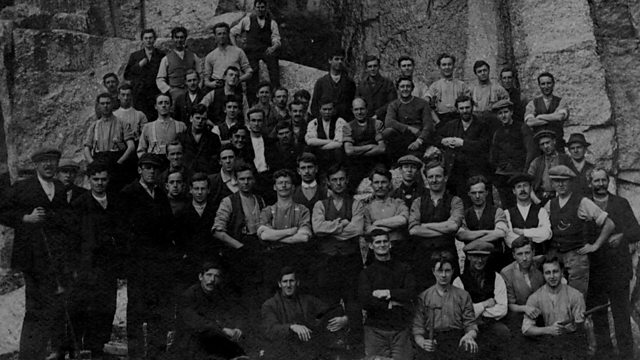Princetown, Devon: Prison of Protest
Prison, protest and the people objecting to war.
Officially there were 16,000 conscientious objectors during World War One. Although the numbers are relatively small, their impact locally and nationally was great.
Princetown was controversial from its beginning, but gained national notoriety in February 1918 when one conscientious objector (Harry Firth) died and the men (possibly as many as 800) went on strike in protest.
The men claimed conditions were poor and that he had not been given medical attention. The ���˿��� Office inquiry reported that his death had not been caused by malpractice.
In March 1917; 300 prisoners were removed from Princetown Prison and over the next 15 months perhaps as many as 1,100 conscientious objectors were housed there.
The locks on the doors were removed and the men were able to leave the prison on days off. Their work included farm work, quarrying and the building of a Dartmoor road.
Some reports suggest as many as 60 religious affiliations among the population of conscientious objectors on Dartmoor. Papers of men there also suggest there were religious and political meetings as well concerts and sports.
The reactions of local people, including the Bishop of Exeter, Lord Henry Cecil, were consistently reported negatively. In his recording at the Imperial War Museum, Joseph Hoare remembers two men being stoned for attending a church service.
Some Devon towns – including Totnes and Tavistock – requested bans on conscientious objectors.
Location: Princetown, Dartmoor Prison, Devon PL20 6RR
Image: Conscientious objectors, courtesy of the Peace Pledge Union (PPU)
Duration:
This clip is from
Featured in...
![]()
Conscientious Objectors—World War One At ���˿���
The individuals who made a stand against conscription
![]()
���˿��� Radio Devon—World War One At ���˿���
Places in Devon that tell a story of World War One
More clips from World War One At ���˿���
-
![]()
The loss of HMY Iolaire
Duration: 18:52
-
![]()
Scotland, Slamannan and the Argylls
Duration: 07:55
-
![]()
Scotland Museum of Edinburgh mourning dress
Duration: 06:17
-
![]()
Scotland Montrose 'GI Brides'
Duration: 06:41







